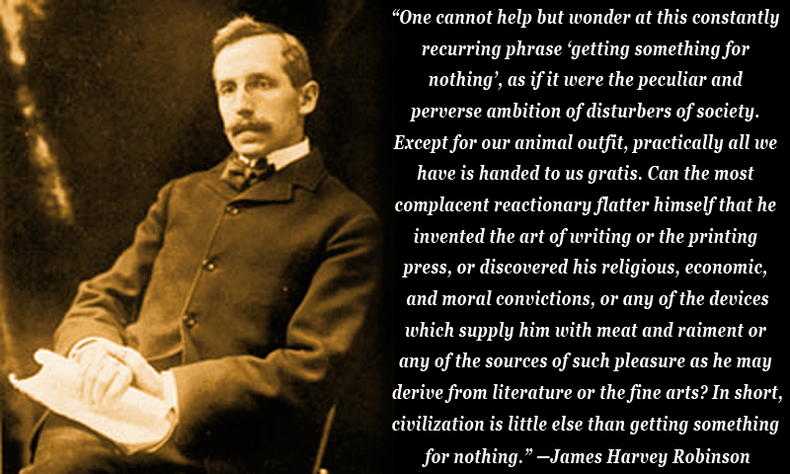Basic Income and the Problem of Freeloading Freeriders
(Click here to also read my introduction to the perspective of basic income as basic resources)
A common concern of the idea of basic income is the idea of freeriders lazily freeloading off the hard labor of others, contributing nothing in return.
I'm currently reading Karl Widerquist's latest book, and I like his take on this concern on page 177.
He gives an example of a group of people on an island where a well needs to be dug so that everyone can have fresh water. Only one person is needed to do it, and so one volunteer steps forward to do it. The deal is that he'll do it in exchange for a larger claim to resources than everyone else.
This isn't to say he's paid for it. It's that instead of the island's total available resources being split say 20% for 5 people, that 4 people get 19% each and the volunteer to dig gets an additional 4% claim. Each person is basically giving up 1% of their claim to resources. No money is exchanged. The person digging the well does so for the rights to a larger share of the island.
So now, even though no one paid for the well to be dug, and no one expended any effort themselves, are they free-riding? Are they freeloaders for drinking the well water for the rest of their lives despite not having helped dig the hole themselves? Will their descendants be freeloaders for being born on an island with a well none of them helped dig, with a reduced share of resources handed down to them by their own ancestors in comparison to the greater share of resources handed down to the digger's descendants who also didn't dig the well either?
The question of freeloading assumes that not expending labor is freeloading, and it's just a simple equation. But this equation has other variables we all ignore, like time and what resources we give up our rights to claim as our own birthright.
We have all given up our own claims to natural resources. These natural resources were accepted as payment for all the work ever done and presently being done. It is only in places like Alaska that this is recognized. Instead of just letting companies drill for the oil they only found and did not produce, Alaska says that each Alaskan should see payment for the claiming of resources that were mutually shared prior to being sucked out of the ground by oil companies.
Once you look at it this way, are Alaskans freeloading? Of course not. It's Alaska's oil and they're just the only state so far to recognize it. In fact, even that is only arbitrary because the lines of Alaska are imaginary. It's not Alaska's oil, it's really Earth's oil, actually Earth itself, and therefore something every human shares a common right to, especially when we burn it all and this affects the entire world, and not just Alaska.
Those in the top 1% are in the top 1% because they and their ancestors dug the wells. They now control almost all the resources, and yet we pretend the rest of us didn't provide them these resources through giving them our own claims, and the future claims of all our descendants.
No one with a basic income can ever possibly be a freeloader, because a basic income is compensation for everything no one ever created, and for everything created by those long dead.

Basic income is basic resource compensation.
It is a market correction to all the freeloading that has been going on for centuries.

Did you enjoy reading this? Please click the subscribe button and also consider making a monthly pledge in support of my daily advocacy of basic income for all.
_large.jpg)
UBI Guide Newsletter
Join the newsletter to receive the latest updates in your inbox.
